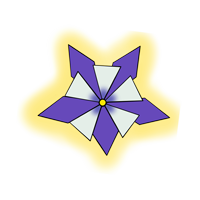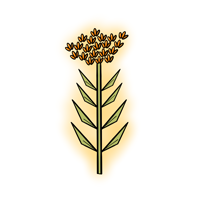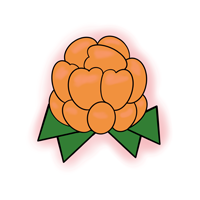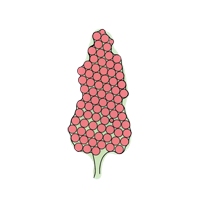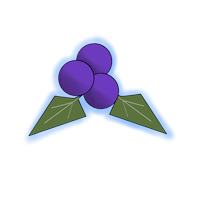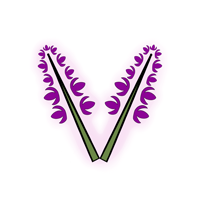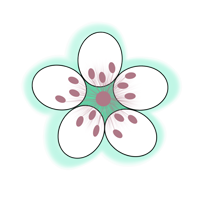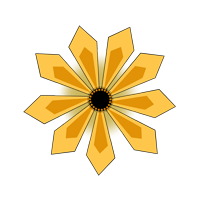This article looks at three case studies involving applied theatre with Indigenous youth in diverse settings—a rural school, a youth detention center, and a community organization for street-involved youth.
Research
Pictographic icons at the top of cards, and "pills" - / +, at the bottom of, cards can also be used to add or remove filters.
The article explores the innovative approach of ‘Ohana Ho‘opakele, a community-based initiative in Hawai‘i advocating for restorative justice through culturally rooted wellness centers called pu‘uhonua.
This article explores the collaborative efforts of the Walls to Bridges (W2B) collective in organizing the Evolving Our Work symposium, commemorating W2B's 10th Anniversary. It reflects on participatory planning, highlighting decolonial frameworks and the integration of Indigenous resurgence, Land Back movements, and Black Lives Matter principles.
This study explores the intersections of identity, health, and spirituality among Indigenous queer, trans, and two-spirit youth amidst the pervasive impacts of colonial violence.
This study is focused on the resilience and survival strategies of Palestinian women living under political oppression and war in Gaza
This study examines the decolonization of qualitative research methods through transformative community engagement, focusing on resilience among Palestinian refugees in the West Bank
This study explores the daily lives of Palestinian olive growers under military occupation, employing decolonial ethnography to examine collective forms of resistance.
This study took a reproductive justice approach to examine the association between relationships to land and
wellness in a study of urban Indigenous women, two-spirit, trans, and gender-diverse people of reproductive age in Toronto, Canada.
Drawing upon grassroots movements, the study underscores the limitations of relying on conventional legal systems and the urgency for community-based transformative justice.
The project examines the role of 2-QTPOC media, particularly through the lens of "Mangos with Chili," in promoting collective liberation, decolonization, and highlighting the intersection of memory and representation. This exploration seeks to understand the transformative potential of such media in the political and cultural landscape.
Learning from Cofimvaba community’s knowledge systems (IKS), this project seeks to find ways of identifying and making use of local and indigenous knowledge which could benefit the school curriculum.
This article advocates for the use of arts-based participatory research (ABPR) methodology in the context of marine spatial planning (MSP) in Algoa Bay, South Africa.
This study examines the impact of a participatory oral history project, "On Our Land," on Palestinian youth in the South Hebron Hills, exploring how it fosters their political and social capabilities.
This project uses Youth Participatory Action Research (YPAR) and child-driven methods to study violence against children (VAC) and street-connected children in Uganda.
This project looks at the challenges and barriers mobile populations in Kenya and Uganda face in receiving adequate HIV care.
This article tackles the poor wellbeing of students in a rural South African High School school using Youth Participatory Action Research as a methodology to address the issues raised by the students.
The Tipuna Project is a creative community-based collaboration between Māori and Pākehā researchers, artists and activists in Aotearoa to experiment with the decolonial possibilities of communing with our Indigenous and settler ancestors.
The Six Seasons project aims to support the ongoing work of reclaiming Indigenous languages, histories, and knowledges among the Asiniskaw Īthiniwak (the Rocky Cree). It does so through the creation of a series of historical picture books, picture book apps, and teacher’s guides.
Our project producing a set of visual, audio and textual resources to support Indigenous and non-indigenous researchers planning research collaborations to think about their methods, assumptions and behaviour .
To serve the unique language learning and cultural heritage needs of their communities, Maya K'iche', Q'eqchi', Tz'utujil, and Yukatek scholars are creating print and audiovisual editions of the Popol Wuj. Researchers at the University of Virginia are using free, open source tools to present the texts as interactive digital works that are accessible to users with limited bandwidth.
Indigenous youth created digital storytelling videos that convey how M’Wikwedong Indigenous Friendship Centre promote health by nourishing relationships. M'Wikwedong's approach contrasts with Western understandings of health promotion that emphasize control over people’s health.
Reclaiming identity through cultural programming influenced the ability to move away from disruptive factors and build a sense of purpose and meaning. Longitudinal mixed methods consisting of validated quantitative self-report measures, combined with focus groups (conducted in a sharing circle format) encompassed the intervention research study.
The Rematriation Project aims to provide targeted, culturally appropriate capacity building in Inuit communities in NW Alaska that hones, develops, and complements local skills related to digital archiving and digital literacies.
La metodología incluye encuestas e investigación de campo (talleres) en los cuales se caracteriza a la población y la zona de estudio a tráves del un diagnóstico; con esta información se realiza la programación del aplicativo para generar la herramienta desarrollada; posteriormente es validada por la comunidad y con la aternativa seleccionada se inicia el proceso de gestión de recursos, capacitación, construcción, operación y mantenimiento.
Para aprehender el fenómeno en el contexto teórico metodológico de la antropología de la tecnología y la práctica citada se trabajaron tres categorías: tecnología, redes sociales y modelos, a la luz de los pueblos indígenas.
A través de entrevistas con diferentes miembros de la comunidad, se pudo conocer las opiniones y puntos de vista con relación a los monumentos conmemorativos del pasado Rankülche. También se efectuaron visitas y reconocimientos de lugares de interés arqueológico con algunos representantes indígenas.
In this article, the authors provide a diagnose to the problems of machine translation systems for low-resourced languages by reflecting on what agents and interactions are necessary for a sustainable machine translation research process.
This article further develops the Weaving Indigenous and Sustainability Sciences to Diversify Our Methods (WIS2DOM) recommendations on how to put Indigenous knowledges in conversation with western science.
The Indigitization project is offers support to Indigenous communities regarding the conservation, digitization, and management of Indigenous knowledge.
This paper describes the first year of the Indigenous Languages Technology (ILT) project which offers a software to support Indigenous communities in preserving and expanding the use of their native language.
This project aims to improve Internet access in rural and Native American reservation communities while also providing support for local capacity building towards digital content creation.
This article discusses how land-based learning initiatives can provide a better understanding of Indigenous resilience within the context of Indigenous resilience to colonial violence.
The Summer Internship for Indigenous Peoples in Genomics (SING) strives to promote higher Indigenous representation in genomics through providing communities with innovative, culturally relevant, and Indigenous-led mentorship and training.
The Indigenous Peoples and Environmental (In)Justice project comprises a series of Indigenous-led research activities that employ Indigenous knowledges to the investigation of environmental injustices.
This position paper presents a diverse set of texts that centers Indigenous concerns in their engagements with artificial intelligence.
This project is based on participatory research on seafood safety and marine pollution at British Columbia. The researchers are interested in stablishing a seafood safety monitoring program that is in accordance with the principles of sovereignty for coastal First Nations.
Based on the experience organizing the workshop “Connecting Guardians in a Changing World” (2019), the authors provide a set of practices to weave together Indigenous knowledge systems and Western science regarding research and monitoring of terrestrial biodiversity in Canada.
The Civic Laboratory for Environmental Action Research (CLEAR) is an Indigenous-led feminist and anticolonial laboratory conducting research on social and natural sciences related to environmental justice, especially plastic pollution.
This article describes the best practices and lessons learned from Indigenous-led community-based water monitoring initiatives that is rooted in Indigenous laws and is a practical expression of Indigenous water governance.
This article presents three successful Indigenous environmental health projects that used participatory research in their methodology.
This report delineates the key challenges and opportunities to better food security and Indigenous health in Pictou Landing.
The researchers work with Aamjiwnaang community members to collect data and assess the history and operations of the Imperial Oil Refinery in Sarnia.
In this project, researchers and the community co-designed a culturally sensitive assessment process for identifying Fetal alcohol spectrum disorder (FASD).
This article is based on experiences in LACE (Labour Mobility and Community Participation in the Extractive Industries), a research project that took place in the Yukon from 2014 to 2018.
Adding to existing research on school dropout as a public health issue, this study moves to position school non-completion as a form of biopower, and both a physiologically and psychically health-protecting act.
The author reflects on an experience in the Northern Territory (NT) of Australia, with community members rewording an application form for government funding, creating a version with less jargon and unnecessary repetition.
This article outlines four ethical guidelines for conducting research. They offer recommendations for those who are planning to conduct research with Indigenous Peoples.
This research aimed to better understand the career development needs of Maori and Indigenous (MAI) early career scholars. Values and practices emerged that could provide a foundation for post-doctoral supports and programs.
This article outlines a participatory action research project involving Inuit youth in addressing violence prevention and health promotion. The guiding principles that were developed incorporate Inuit Qaujimajatuqangit (Inuit societal values).
This article looks at the disaster response in 2011 when the MV Rena ran aground on Otaiti, a reef located 27 kilometres off the coast of New Zealand, bringing a cultural perspective to the environmental restoration process.
Maori communities thrive when they have collective control over their land and its resources. Individual land-ownership has benefitted a few individuals but to the detriment of the community.
In this study with Maori mothers and their collective experience of intimate partner violence, methods and principles are utilized which follow Kaupapa Maori methodology.
The research points to changes that should be made in policy and how child welfare is conceptualized in Canada and the need for culturally relevant care and services for Indigenous children and their families.
The author includes a discussion of Indigenous and allied 'co-conspirator' partnerships and offers the example of strengths-enhancing evaluation research (SEER) as a research model.
The project used a Kaupapa Maori approach to the research process and design and involved semi-structured narrative interviews with 17 rongoa Maori healers. Findings point to the role of healers as mediators of the healing process.
Using interaction analysis, this article looks at a Native American family's experience on a walk in an urban forest. The authors develop a methodology of walking, reading, and storying land.
In order for science education to be 'culturally sustaining and revitalizing' teachers need the opportunity to engage in community-based exploration of Western and Indigenous sciences and incorporate storytelling into their research and pedagogy
There is a gap in research on Maori attitudes towards physician-assisted dying. This collaborative research explored the topic using interviews and focus groups with Maori elders.
This project used community-based participatory research to document the health and environmental issues faced by the community. This was done using Photovoice, photographs taken by the participants, and interviews.
A five-year retrospective study of oncology, diabetes, and mental health patient data. Findings point to the undervalued role that paraprofessionals play in delivering health care, as well as a need for improving mental health support.
Based on research with the Indigenous Women's Wellness Project in Brisbane, Australia, this study explores 'Yarning' as a method for community-based health research.
A review of 13 diabetes prevention studies in Indigenous communities in Australia, Canada, New Zealand, and the United States. Findings included how culture centeredness and community engagement can improve diabetes outcomes.
This study used a participatory action research framework to look at how health information was disseminated and used within three Indigenous communities - one urban Inuit, one urban Métis, and one semi-rural First Nations community.
In the exhibit, one student's story describes how 'school didn't fit me, and then I didn't fit school' (p. 171), a theme which is further explored throughout the paper alongside the concept of survivance.
This study utilizes co-design and kaupapa Maori research approaches to design a healthy lifestyle app. A holistic view of health was emphasized: one that centred on family well-being, as well as on maintaining connections to people and to place.
This article is an evaluation of the Kòts’iìhtła ('We Light the Fire') project, a 5-day creative art and music workshop for youth in Behchokò, NWT. Arts is a catalyst for discussing issues and visions in their community and lives.
Dominant approaches to science education heavily rely on operating with a western perspective and can often whether unintentionally or not invalidate Indigenous knowledges and science.
First Nations graduates thrive in institutions that are specifically for them, with faculty and students from within their communities. These institutions and the graduates need on-going financial support.
This study consisted of interviews with Maori and Samoan grandparents on the topic of feeding their grandchildren. A strong connection between 'healthy' food as home-cooking and food grown in their gardens was identified.
This project aimed to support students' navigation between Indigenous and Western scientific knowledge systems, and to shift science and technologies away from being considered something 'from Western cultures'.
This article explores Indigenous perspectives on making and sharing within the context of an Indigenous STEAM summer camp. Reclaiming traditional forms of making enacts Indigenous knowledge as continual, thriving, and self-generating.
This study takes a qualitative strength-based approach to better understand why participants chose to leave four- year institutions, and seeks ways that post-secondary institutions can better support Native students.
The flag has been an important cultural symbol and piece of recognition for Onkwehonwe people. This article explores the action of flag raising amongst Haudenosaunee students in various high schools within New York.
Home-going is positioned as a resistance strategy of Native students as it directly opposes past educational policies of assimilation and removal. Currently, home-going is misunderstood among campus faculty and policymakers.
This research gathered stories of young Maori parents, on their experiences of support during pregnancy, birth and early parenting. These stories of their parenting experiences can inform policies and practices.
While education is deemed an important determinant of health, for Native people education is also a site of historical trauma. Native elders (age 55-80) were interviewed to look at the impact of education on health and well-being.
This study involved interviews with grandparents and focus groups with grandchildren to explore the role of grandparents within Tongan culture and the relationship between grandparents and grandchildren.
In this article, the authors challenge the prevailing perspective of 'science' as being equated to Western science and as being a value-neutral or objective entity.
In this review, Virginie Magnat describes Shawn Wilson's work regarding Indigenous research methods, and in particular how this applies to her own work in theatre performance.
The objective of the study was to explore 'from the perspective of urban, Aboriginal and Torres Strait Islander parents and carers' the impact child oral health has on families.
El artículo plantea como caso de estudio la capacitación propiciada al “Colectivo Juventud de Emprendedores”, conformado por un grupo de indígenas Shuar de la Amazonía Ecuatoriana, que en 2015 empezó un proceso de emprendimiento para rescatar la sabiduría de sus ancestros y reforestar con plantas de Ilex Guayusa algunas zonas de la provincia de Morona Santiago, Ecuador.
El objetivo del proyecto fue evaluar la problemática de violencia de género y entre generaciones en una comunidad Embera, del departamento de Antioquia (Colombia).
El artículo recoge la experiencia de un proyecto de acción social liderado por la Sede Atlántico de la Universidad de Costa Rica. Su propósito es la introducción de las Tecnologías de la Información y la Comunicación (TIC) en las comunidades indígenas Cabécares de Chirripó, Costa Rica.
El artículo analiza una dimensión particular de la "cuestión indígena" en Chile: la de la Participación Social en los procesos educacionales, particularmente en el contexto de la Reforma Educacional.
This article calls for research in Africa to be driven by Indigenous local knowledge (ILK). Using examples from different projects and organizations, the author describes varied methodological frameworks and approaches to indigenous research.
Investigaciones de campo realizadas por las autoras con niños indígenas galibi-marworno, de la región de Uaçá, al norte del estado de Amapá, en Brasil.
This article derives from an initial bibliographic research and participatory work with the community, from which an architectural and development proposal arose.
El texto es un pequeño artículo de divulgación sobre un proyecto de investigación que aborda la necesidad de generar estrategias participativas para la conservación y preservación de conocimientos tradicionales en los pueblos indígenas de la Amazonía continental.
Este artículo evalúa el desarrollo de una intervención comunitaria realizada en una comunidad del pueblo Mapuche (Argentina), y orientada por los lineamientos de la psicología social comunitaria.
El trabajo expone las cuatro fases de un ciclo de Investigación Acción Participativa (IAP), desarrollada en la Selva Lacandona de México con la colaboración de los grupos originarios lacandones y ch'oles.
This paper presents a participatory planning study on the management of protected areas in zones with conflicts over property rights of the land, carried out with a Huilliche community (Changuín) in the Chiloé National Park, Chile.
El texto presenta un proceso de implementación de tecnología de saneamiento básico en la comunidad Ticuna del Resguardo Nazareth.
El trabajo se enmarca en la perspectiva del desarrollo sustentable desde la óptica de la ecología. Aborda el papel de la investigación participativa entre el sector académico y una comunidad indígena en México
Individual accounts of abortion were examined from within a wider Maori cultural practice and values on reproduction. It gives a rich and varied Maori perspective on a sensitive topic.
In this article, researchers utilize the framework of Kaupapa Maori in order to understand and better investigate concerns when it comes to ischaemic heart disease among Maori.
A gathering of Indigenous academics from Canada and New Zealand. The theme of the gathering was developing, expanding and sharing Indigenous knowledge and education, from primary to graduate school.
This article calls for a re-visioning of social justice theory and practice for social work, one that moves beyond the rhetoric of social justice towards its realization, specifically for Indigenous communities and Indigenous youth.
Indigenous women are the experts in the needs of their community.The goals of the research were: 'To develop a consolidated picture of the affairs of each community in the Kayahna area from the women's point of view' (p. 154).
This article uses retrospective analysis to look at language revitalization efforts and an interactive multimedia project. Language is treated as living, and language learning is framed as a relational process.
In this research obesity was not seen as just an individual issue, it was also a structural issue as it reflected those Maori who were isolated from their cultural and historical roots.
The vignettes as a method were a response to a desire among the 'Aboriginal co-researchers' to give recommendations in their 'own words' without academic framing from the 'mainstream researchers'.
Through the study two versions of 'healthy eating' emerged: one relating to traditional food and preparation methods and the other relating to 'southern' cooking methods and foods, as well as a more medicalised account of illness.
A community-based participatory research project in Southwest Alaska looking at youth involvement in health promotion. Drew from two community-based action activities: (a) being useful by helping elders and (b) being proud of our village.
This article looks at cultural and class differences through a close reading of conversations between the Inuk youth researcher and research assistant involved in the Nanisiniq Arviat History Project in Arviat, Nunavut.
This paper makes the case for increasing Indigenous-led land and sea management and shows how, for Indigenous communities, ecosystem management activities can affirm and support their connection to land (country).
Indigenous people telling their own stories disrupt the 'taken-for-granted' standard history of Canada. Storytelling is a legitimate and respectful way of telling Indigenous history from an Indigenous perspective.
Students were hired as data gatherers and co-researchers for projects within their communities. This report outlines the methodological approaches used in the project as well as some preliminary findings.
Wildlife is a key food source for Indigenous people in the Amazon. Conservation efforts are more likely to succeed if they are based on respect, community collaboration, and integrating local Indigenous knowledge with western scientific knowledge.
This research used indigenous research paradigms combined with mixed methods to test the effectiveness of a youth, school-based, health risk reduction program in Botswana.
This study looks at the microbial composition of fish dried using Greenlandic traditional methods as well as industrial methods. The study counters the perception that Indigenous science is less rigorous than western-based methods.
The article argues that geography is a colonial discipline. Knowledge is not neutral. It is produced in places and by people who are often linked to or bound by a colonial context and its violence towards Indigenous people.
The authors use the term 'ceremonies of relationships' to talk about responsible and meaningful engagement with youth collaborators in the research process.
